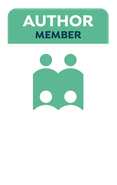 Q: Tell us about your book Sugar Scars is set in a post-apocalyptic world, which is a pretty common story premise these days, but I've taken a different approach than other books in this genre. Most of these kinds of stories focus on the desolation that the survivors face. Worlds like Mad Max or The Walking Dead. In Sugar Scars, a virus kills all but 1 in 10,000 people on the Earth. The survivors are left in a world of virtually unlimited resources where survival is easy. Plenty of food on the grocery store shelves. Thousands of cars and houses to pick from. The struggle in Sugar Scars comes entirely from within the main character. She is a Type 1 diabetic. She lives through the virus but realizes that she will die soon if she can't figure out how to make the insulin that keeps her alive. Extracting and refining insulin is a highly complex process that takes an entire industry and was discovered by brilliant Nobel-prize winning scientists. Now a nineteen-year-old high school dropout has to rediscover the process or die trying. In Sugar Scars there are no villains. No one directly opposes her attempts and, in fact, many people try to help. But the task is almost impossible and she has to make some very difficult choices along the way to keep body alive. Q: What inspired you to write the story? I read an article about having characters with disabilities, which is rare in fiction. I was fascinated by the idea of having a character whose main struggle was against their own body. I decided to write a short story and started researching different disabilities and diseases. Diabetes is so manageable with modern technology these days that most people don't realize how deadly it is. Before the early twentieth century Type 1 diabetes was a certain death sentence. The story of the discovery and use of animal insulin to keep human diabetics alive was quite dramatic. They used to have wards of diabetic children that were slowly dying. When their pancreases finally stopped working, they would slip into a coma and soon pass away. The first insulin, extracted from dogs, was given in one of these wards and within minutes the children started waking up. It's incredibly rare that a cure is so powerful and effective. I decided to recreate this situation in our modern world and began writing a short story. But the story was too exciting and I couldn't make it anything less than a full novel. Q: Is this your first work of fiction? If not, please tell us a little about your first book/series. This is the third novel I have written, but the first one to be published. The other two will be published after Sugar Scars. We decided that Sugar Scars was the best introduction to my writing. I write Science Fiction and it is the least fantastic of the three and will be accessible to people who don't normally read Science Fiction. It's highly realistic. The only speculative element is the virus that kills most of the population. My first novel's working title is Suspended. It's about a starship that is travelling to colonize a new world. All the passengers are kept in suspended animation for the two-hundred-year journey. An accident occurs and one man and one woman are awakened during the journey with more than a hundred years to go. These strangers have to live out their lives on the starship, trying to build a life from nothing. Q: When I read the books I see subjects, themes and story lines that could appeal to many different kinds of readers. Who is your primary audience for series? I think in general my writing will appeal to people who like stories that get tension from moral choices that the characters have to make. There's some physical action, but the most intriguing parts come from the difficult decisions the characters are faced with. They have to do things that make them question their basic beliefs about morality and faith. Sugar Scars, like all my novels so far, has a strong romantic element. I think readers that enjoy romances will find plenty to keep them interested. While the main character is concerned about keeping herself alive, she is literally one of the last young women left on Earth and she can't help but attract the attention of men. She meets a few men and each has a different reaction to her imminent mortality. Q: Please tell us about yourself. I live in Montgomery, Alabama, with my wife and five children. My wife and I have a heart for orphans and we've adopted one of our children and been foster parents to another. The foster system brought us the greatest joy and greatest sorrow of our lives. We had a foster daughter for nearly four years and tried to adopt her, but that didn't work out. I wrote Sugar Scars during this and I think a lot of the pain we were experiencing made it into the novel. In my day job I develop software for hospitals. My thinking is very logical and mathematical, and you'll see this in my writing. But for writing to be interesting it has to deal with human emotion and the hard choices people have to make. I like to show characters that think logically, but are faced with situations where this fails them. Faith is a big part of my life. I'm involved in my local church. Faith is a frequent theme in my writing, especially in Sugar Scars, but I don't like to write characters that believe just like I do. That's boring. The main character is Sugar Scars has no real belief in God, but she gets to see -how faith works for other people. Like in real-life, some people are transformed by their faith. Others become obnoxious and self-righteous. Q: Have you been writing for a long time? I graduated college about twenty years ago with a minor in Creative Writing. That sat in the back of my mind for years while I started my career and raised my family. About three years ago I realized that if I didn't pursue my dream of writing, it would never happen. So I began with my first novel, Suspended. I loved doing it and I got very positive feedback. I signed a publishing contract with Booktrope in January and I hope to have a new novel out every six to twelve months. Q: How much time per week do you spend writing/editing your work? Many writers have a rule of writing something every day, but I find that doesn't work for me. It comes in seasons. I love writing so much that once I start on a project I tend to obsess on it and my wife and children are fond of eating on a regular basis, so I can't do that for too long. So I'll go through periods where I don't write much, but spend all my time thinking of story ideas. Then when I can't stand it anymore, I'll spend every spare moment writing. The first draft of a novel usually takes six to eight weeks. Q: What are you working on at the moment? I just finished the editing phase of Sugar Scars and now I'm trying to decide on which of two stories to pursue for my next novel. One story would be about a woman who adopts an alien child. I think it would focus on the difficult process of getting the alien culture to accept her as a valid mother since she is not of their race. The other story is about a woman who goes into the military and has her body enhanced for service, but in a way that she didn't expect. Info: Web site: travisnorwood.com Facebook: Travis Norwood, Author Twitter: @TravisLNorwood Readers interested in receiving an email when Sugar Scars is published can sign up at travisnorwood.com
0 Comments
Leave a Reply. |
Buy me a coffee to support my blog:
Categories
All
Archives
April 2024
|


